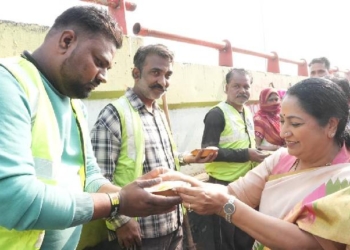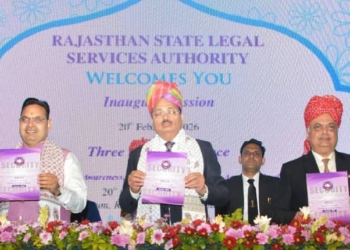Thiruvananthapuram: Climate change is not just a matter that needs to be considered when the IPCC (Intergovernmental Panel on Climate Change) releases their very worrisome reports, Kerala Agriculture Minister P. Prasad said on Tuesday.
Inaugurating a Workshop on Climate Change held here, he said: “It’s experienced every day by us, especially in the agriculture sector. It is critical for us to empower our officers and our farmers on climate resilience and energy efficiency.”
This event took place at a time when the Kerala government is set to address and tackle the impact of the climate crisis on the state’s agriculture sector, setting an example for India, with its state-wide programme titled “Climate Resilience and Energy Efficiency in Agriculture (CREEA)”.
And for this the Departments of Agriculture and Electricity have come together to create an integrated and inclusive approach that will help build the ability of agricultural systems to anticipate, adapt, prepare and recover from the impacts of extreme weather events.
Power Minister K. Krishnankutty said the productivity of Kerala’s farming depends on the scientific and careful analysis of the soil, the nutrients and ensuring all the parameters are taken care of by the department officials.
“Our farmers also need to be made resilient to all external impacts including climate and trade disparities,” said Krishankutty who is a farmer in his home town in Palakkad.
Anjal Prakash, IPCC Author and Research Director and Adjunct Associate Professor at the Indian School of Business (ISB), said the two sectors most directly affected by climate change are water and agriculture.
“Agriculture is the sector foremost impacted by a changing climate and even water falls under this. Climate cChange is a global problem with very local impacts. Every state has different problems to address and so we need to focus on localised district level planning. Beginning a dialogue on this is the first step,” said Prakash.
Agriculture is the predominant in Kerala, accounting for approximately 60 per cent of the land area. Furthermore, it plays a significant role in supporting the livelihoods of approximately 17 per cent of the state’s population. The climate crisis has caused significant damage to the agriculture sector and has had a detrimental impact on the livelihoods of farmers.
(IANS)














